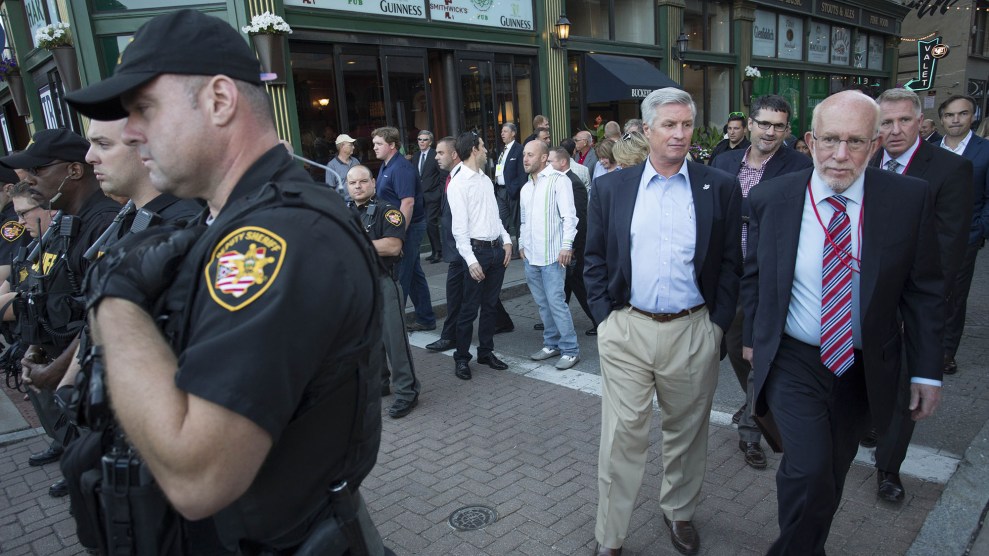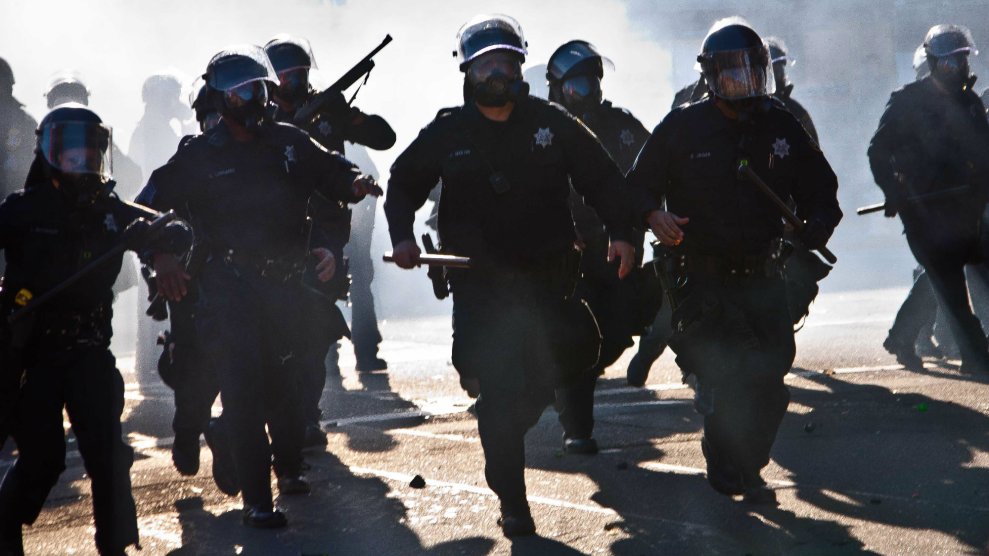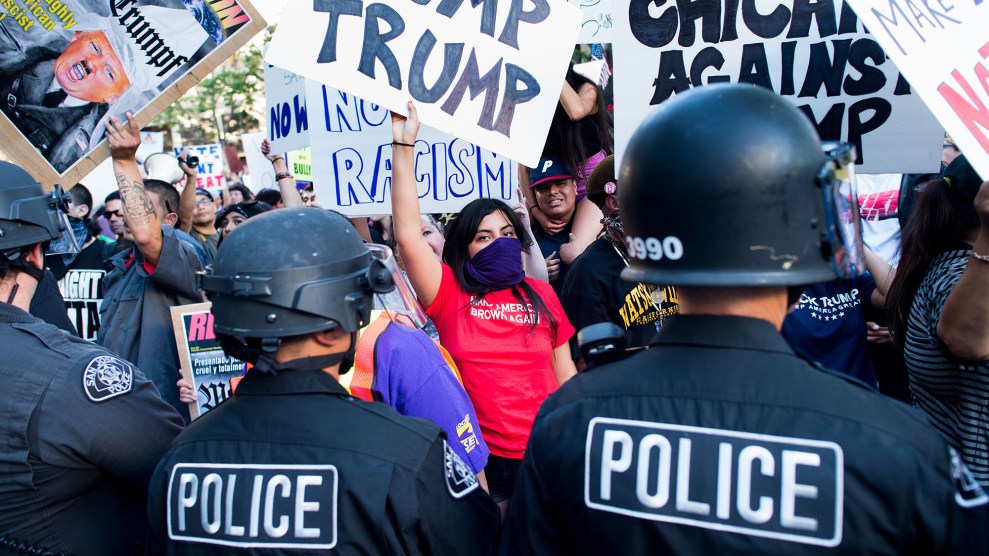
Cleveland police protecting a television news broadcast in Cleveland last AugustRick Majewski/Zuma
The Republican National Convention kicks off in Cleveland on Monday and, despite earlier reports to the contrary, the city’s police department says it’s ready. A key question for law enforcement is what the effect of the state’s open-carry law will be, especially in the wake of the murder of five police officers in Dallas, where people exercising their right to carry weapons legally were mistakenly treated as suspects and complicated the response for police officers.
Given the history of violence between protesters and supporters of the prospective GOP nominee at campaign events, some Trump delegates told Mother Jones’ Pema Levy that they’re bringing their guns to the event to protect themselves. The city of Cleveland had previously released a list of prohibited items for the area around the convention, including water guns, gas masks, swords, and nunchucks.
Cleveland Police Chief Calvin Williams said Wednesday at a press conference that his department is ready. Speaking with reporters, Williams said his officers are experienced and can handle crowds that include people who are openly armed.
“We’ve done this before,” he said. “This is not the first time the city of Cleveland will see people open carry. We’ve had people with assault rifles, and you name it, and groups of people. We’ve handled it before.”
The police will be armed with all sorts of weapons and equipment purchased with a $50 million federal grant specifically for the convention, but protesters and the general public are limited in what they can bring within the convention’s 1.75-mile “event zone,” the area around downtown Cleveland where much of the convention activity will take place. Guns are fine, with a permit, but there are a lot of things that are off-limits.
Here’s the list of weapon-like items prohibited within the event zone during the convention:
- Lumber larger than two inches wide and a quarter-inch thick
- Metal, plastic, or other “hard materials” more than three-quarters of an inch thick
- Air rifles and pistols
- Paintball guns
- Blasting caps
- Switchblades or automatic knives
- Knives with blades longer than two and a half inches
- A cestus
- Billy clubs
- Blackjacks
- Swords and or sabers
- Hatchets/axes
- Slingshots
- BB and pellet guns
- “Metal knuckles”
- Nunchucks
- Mace, pepper sprays, or other irritants
- Iron buckles
- Axe handles, shovels, “or other instrumentality used to cause property or personal damage”
- Explosives/fireworks
- Sound amplification equipment
- Drones
- Containers of bodily fluids
- Aerosol cans
- Umbrellas with metal tips
- Water guns and/or water cannons
- Rope, chain, cable, or strapping longer than six feet
- Glass bottles (empty or not)
- Locks
- Gas masks “or similar device designed to filter all air breathed by the wearer in an attempt to protect the respiratory tract and/or face against irritating or noxious gasses or other materials”
So, to recap: Guns are cool, but leave your swords, hatchets, and cestuses at home.












